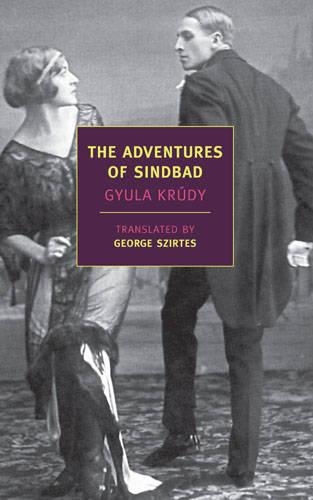
The Adventures Of Sindbad
(Paperback, Main)
Publishing Details
The Adventures Of Sindbad
By (Author) Gyula Krudy
New York Review Books
NYRB Classics
15th January 2012
Main
United States
Classifications
General
Fiction
894.51132
Physical Properties
Paperback
240
Width 130mm, Height 202mm, Spine 13mm
250g
Description
"What you have loved remains yours." Thus speaks the irresistible rogue Sindbad, ironic hero of these fantastic tales, who has seduced and abandoned countless women over the course of centuries but never lost one, for he returns to visit them all-ladies, actresses, housemaids-in his memories and dreams. From the bustling streets of Budapest to small provincial towns where nothing ever seems to change, the roaming consciousness of this ghostly Lothario comes upon his old flames under windows where they first courted, along the banks of the Danube in which they drowned, in churches and in graveyards, where Eros and Thanatos tryst. As the women pour out their tales of happy and unhappy love since he left them, lies, bad behavior, and fickleness on both sides are forgiven, and love is reaffirmed as the only thing worth persevering for, weeping for, and living for. Hugely popular in his native Hungary and throughout Eastern Europe, The Adventures of Sindbad is Gyula Krudy's most famous book and a tender evocation of the autumn of the Habsburg Empire.
Reviews
[Krdys] literary power and greatness are almost past comprehension . . . Few in world literature could so vivify the mythical in reality . . . With a few pencil strokes he draws apocalyptic scenes about sex, flesh, human cruelty and hopelessness. Sndor Mrai
"There is about Krdy an absolutely railed-down otherworldliness. A brilliant spectrum where reality is just one possible colour This book is just a gift. I am grateful to George Szirtes for making it possible for me to read it and praise it." Michael Hofmann, The Times Literary Supplement
"The Adventures follows a dream-weaving seducer, and Krdys prose is appropriately seductive, a litany of long, languid, sighing sentences that introduce an element of enchantment to Sindbads universe of provincial inns and restaurants in Pest where one might rendezvous with an actress or a goldsmiths wife....Sindbads Adventures, then, are some of the loveliest violet-tinted lies ever put to paperwreathed around some very nettling truths about what we call love." -- The L Magazine
Author Bio
Gyula Krudy (1878-1933) was born in Nyiregyhaza in northeastern Hungary. His mother had been a maid for the aristocratic Krudy family, and she and his father, a lawyer, did not marry until Gyula was seventeen. Krudy began writing short stories and publishing brief newspaper pieces while still in his teens. Rebelling against his father's wish that he become a lawyer, he worked as a newspaper editor for several years before moving to Budapest. Disinherited, Krudy supported himself, his wife (a writer known as Satanella), and their children by publishing two collections of short stories, found success with the publication of Sinbad's Youth in 1911. Sinbad, a ghostly lover who has only his name in common with the hero from the Arabian Nights, became a signature character and figured in stories written throughout Krudy's life. Krudy's novels about contemporary Budapest proved popular during the turbulent years of the First World War and the Hungarian Revolution, but his incessant drinking, gambling, and philandering left him broke and led to the dissolution of this first marriage. During the late 1920s and early 1930s, Krudy suffered from declining health and a diminishing readership, even as he was awarded Hungary's most prestigious literary award, the Baumgarten Prize. Forgotten in the years after his death, Krudy was rediscovered in 1940, when Sandor Marai published Sinbad Comes Home, a fictionalized account of Krudy's last day. The success of the book led to a revival of Krudy's works and to his recognition as one of the greatest Hungarian writers. George Szirtes was born in Budapest in 1948 and moved to England as a refugee in 1956. He has published several books and won various prizes including the T S Eliot Prize for Reel in 2005. He lives near Norwich with his wife, the painter Clarissa Upchurch.
